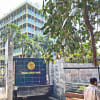Bangladesh Bank toughens stance against luxury imports

In the face of falling foreign exchange reserves, Bangladesh Bank yesterday instructed banks to take up to 75 per cent of import payments in advance from businesses to open letters of credit (LCs) for luxury and non-essential goods.
The central bank took the decision in preparation of upcoming import payment adjustments to the Asian Clearing Union (ACU) which are estimated to eat away $2.24 billion of the country's foreign exchange reserves, said a BB official.
The reserves, which stood at $44 billion on April 30, may decline to less than $42 billion today once the BB adjusts the import payments, which have already been paid to the ACU last week.
The ACU is an arrangement through which participating countries settle import payments for intra-regional transactions.
Bangladesh, Bhutan, India, Iran, the Maldives, Myanmar, Nepal, Pakistan and Sri Lanka are members of the Tehran-headquartered ACU, which was established in 1974.
On April 11, banks were instructed to impose a margin of at least 25 per cent on the opening of LCs for non-essential consumer goods. However, this has failed to contain a rise in import payments.
The central bank in its previous circular did not delineate the items that faced the margin. But this time it mentioned several luxury and non-essential items which would face the high margin.
As per the latest BB notice, banks will have to impose a margin of at least 75 per cent on the opening of LCs for electronic goods such as air conditioners, refrigerators and washing machines.
The same margin has to be maintained for opening LCs for sedans and SUVs.
Importers have to keep a margin of 50 per cent on the opening of LCs for non-essential items like clothes and other goods.
The central bank, however, did not impose any margin on essential commodities such as baby food, fuel oil, lifesaving drugs, and the products for the farm, export and local industrial sectors. For these items, banks can maintain margins based on their relationship with the customers.
The country's foreign exchange market has remained volatile due to an incessant rise in import payments and declining inward remittances in recent months.
The country's import payments increased 44 per cent year-on-year to $61.5 billion in the first nine months of the current fiscal year. Exports grew 33 per cent to $36.6 billion during the period.
Against this backdrop, the trade deficit rocketed to an all-time high of $24.90 billion between July and March.
The BB has also depreciated the taka against US dollar four times this year to contain imports, but the expected results are yet to materialise.
The latest devaluation came on May 9 when the BB depreciated the inter-bank exchange rate by Tk 0.25 to Tk 86.70 per USD. The inter-bank exchange rate stood at Tk 84.80 on May 9 last year.
Because of a shortage of the foreign currency in the banking sector, importers now have to buy the American greenback at a rate as high as Tk 95 to settle import bills.
The central bank is also injecting greenbacks into the market in large volumes to support banks such that they can settle import payments smoothly. It has so far sold around $5 billion this fiscal year.
The central bank bought a record amount of $7.93 billion from local banks last fiscal year when imports plummeted amidst the coronavirus pandemic.
This gave a boost to the country's foreign exchange reserves, which stood at more than $48 billion in August last year.
But the higher-than-expected import payments are now squeezing the reserves.

 For all latest news, follow The Daily Star's Google News channel.
For all latest news, follow The Daily Star's Google News channel. 








Comments